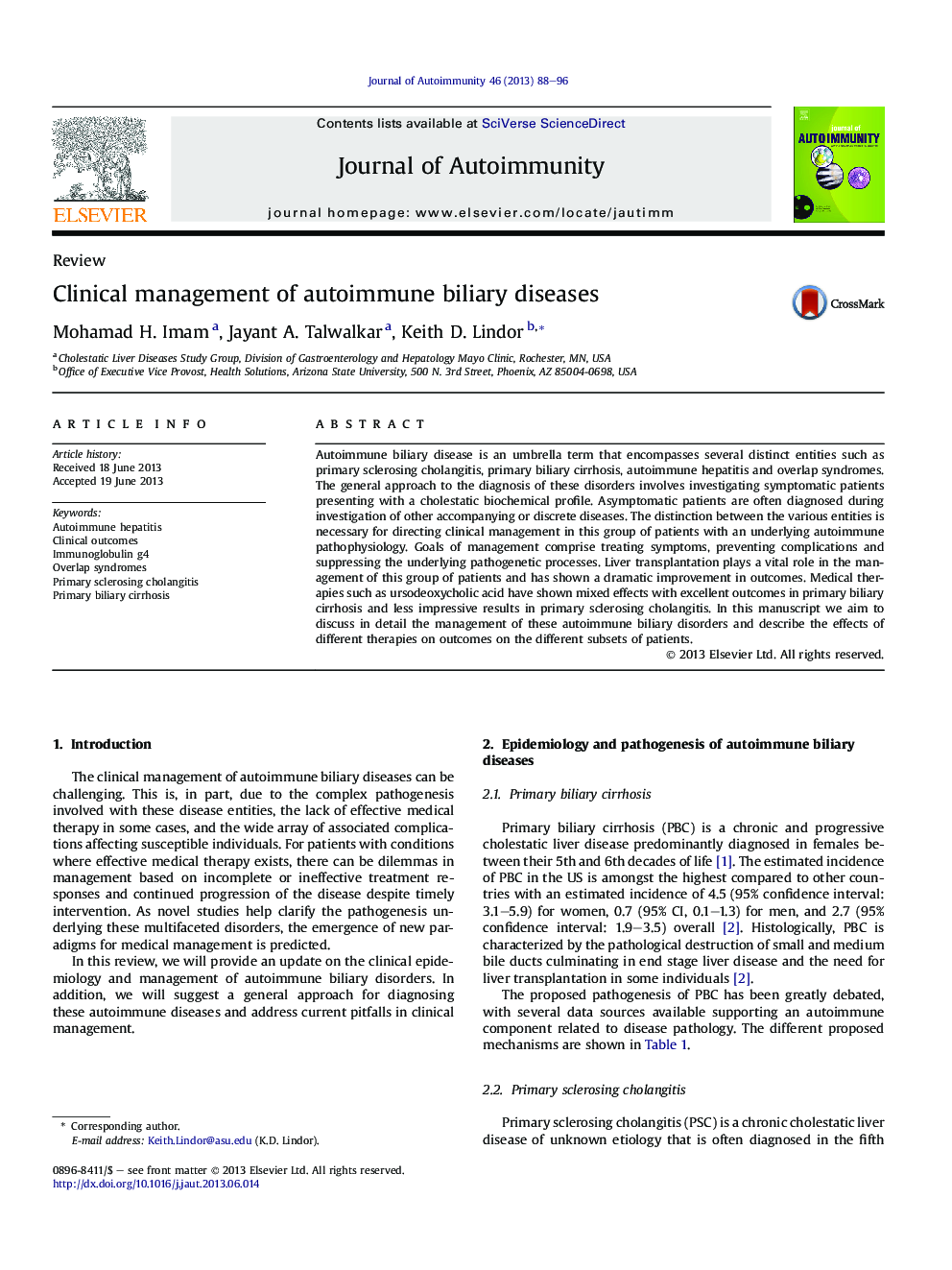| Article ID | Journal | Published Year | Pages | File Type |
|---|---|---|---|---|
| 6119310 | Journal of Autoimmunity | 2013 | 9 Pages |
Abstract
Autoimmune biliary disease is an umbrella term that encompasses several distinct entities such as primary sclerosing cholangitis, primary biliary cirrhosis, autoimmune hepatitis and overlap syndromes. The general approach to the diagnosis of these disorders involves investigating symptomatic patients presenting with a cholestatic biochemical profile. Asymptomatic patients are often diagnosed during investigation of other accompanying or discrete diseases. The distinction between the various entities is necessary for directing clinical management in this group of patients with an underlying autoimmune pathophysiology. Goals of management comprise treating symptoms, preventing complications and suppressing the underlying pathogenetic processes. Liver transplantation plays a vital role in the management of this group of patients and has shown a dramatic improvement in outcomes. Medical therapies such as ursodeoxycholic acid have shown mixed effects with excellent outcomes in primary biliary cirrhosis and less impressive results in primary sclerosing cholangitis. In this manuscript we aim to discuss in detail the management of these autoimmune biliary disorders and describe the effects of different therapies on outcomes on the different subsets of patients.
Keywords
Related Topics
Life Sciences
Immunology and Microbiology
Immunology
Authors
Mohamad H. Imam, Jayant A. Talwalkar, Keith D. Lindor,
